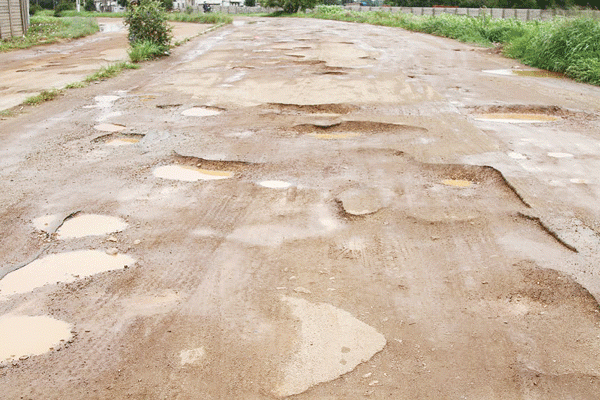
POOR road and energy infrastructure in Zimbabwe are restraining demand for properties in the industrial market and deterring foreign investors from entering the market, an international property management firm has said.
According to Knight Frank’s latest Africa industrial market dashboard, poor road and electricity infrastructure were chasing away foreign investors.
“Zimbabwe’s currency continues to depreciate against the US dollar, made worse by rampant imported inflation. As a result, the demand for industrial space has shifted towards smaller industrial units and warehouses as occupiers attempt to curb rising operational costs.
“In addition, the country’s poor road and energy infrastructure also continues to drag on demand, with international investors, developers and occupiers wary of entering the market,” the report reads in part.
However, the report notes that the availability of high-quality warehouses has helped to satisfy demand from the country’s supermarkets, which continue to seek temperature-controlled, modern warehouses to store imported goods.
“Separately, the government has also introduced regulations to strengthen the local industrial sector, including the ‘Buy Zimbabwe’ policy that encourages buying locally manufactured products,” it said.
The report notes that across the continent, the industrial sector has maintained excellent performance, with agriculture-linked activities, data centres, and logistics facilities underpinning rising demand.
On a regional scale, the report said demand had been further bolstered by governments’ initiatives designed to spur growth, such as Uganda’s 100% tax exemption on income from agro-processing and tax holidays for the first 10 years on the export of finished consumer and capital goods.
- Mavhunga puts DeMbare into Chibuku quarterfinals
- Bulls to charge into Zimbabwe gold stocks
- Ndiraya concerned as goals dry up
- Letters: How solar power is transforming African farms
Keep Reading
Another example is the work by the Kenyan government to encourage the consumption of locally produced goods through initiatives such as “Buy Kenya — Build Kenya”.
Alongside domestic manufacturing, agricultural activities remain the backbone of demand in many locations.
Some countries, such as Zambia, are making moves to reinvigorate the sector by refurbishing the old agro-processing facilities, which is helping to create new supply.
Countries such as Malawi, Egypt, and South Africa are tapping alternative energy sources, such as solar power, to plug the energy deficit.
Away from agricultural activities, data centres and modern logistics facilities are fast emerging as significant new demand drivers in Kenya, Nigeria and South Africa.
Investors, landlords, and developers are responding to rising requirements by expanding existing data centres and building high-quality warehouses, which remain in short supply.







